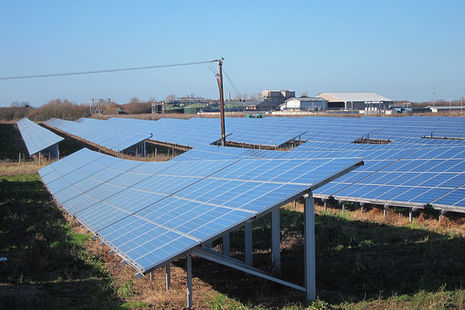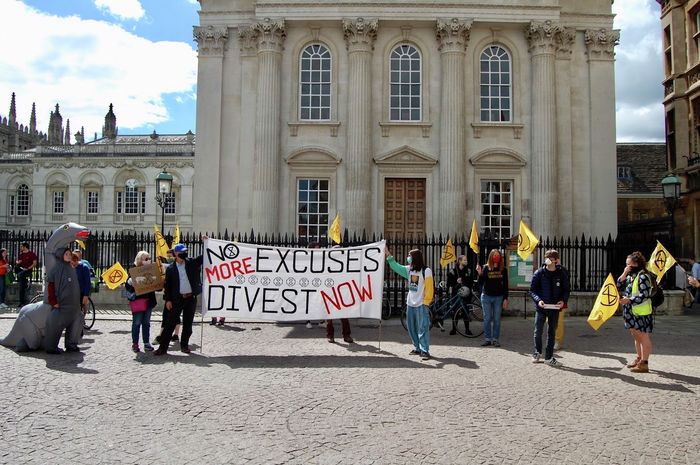University considers plans for solar farm to meet zero carbon emissions target
The planned solar farm would be able to produce the equivalent of 19% of the University’s 2019 electrical consumption

The University is considering submitting a planning application to construct a solar farm on the outskirts of Cambridge, according to a recent report in the Cambridge University Reporter - the University’s journal of official business.
The solar farm, if planning permission is approved, would be built on University owned land to the south east of Cambridge near Lord’s Bridge. The proposed site is currently used for farming.
The electricity generated by the solar farm would be supplied to the University’s West Cambridge site to provide buildings with low-carbon electricity.
The proposed plans would construct a facility with the capability to generate up to 22 megawatts (MW) of electricity, with phase one of building generating a capacity of 11MW. The report claims that the solar farm would reduce the University’s annual emissions by over 5,800 tonnes of carbon dioxide equivalent.
The University Council agreed in principle to the construction of the solar farm and recommended the Director of the Estates now apply for detailed planning permission. The project will then be put out to tender.
The proposal can be understood as part of the University’s July 2019 pledge to reduce its energy-related carbon emissions to zero by 2048 at the latest, with an “aspiration” of doing so by 2038. The University’s commitment includes the goal of decreasing 2015 emission levels by 75% by 2030.
At the time of the announcement, Professor Ian Leslie, Senior Adviser to the Vice-Chancellor with special responsibility for Environmental Sustainability, commented that “as a world-leading University, we need to not only take responsibility for our own carbon emissions, but also to demonstrate to others what is achievable.”
However, Cambridge Zero Carbon Society told Varsity that while they “welcome the University moving to a sustainable electricity supply for a portion of their power, we don’t believe this alone is enough”. In particular, Zero Carbon highlighted that the University continues to maintain academic partnerships with the fossil fuel industry, notably BP, and as such, the solar farm seems to be a mere “attempt to greenwash the University’s tarnished image”.
Zero Carbon activists have similarly criticised the controversial launch of the University’s climate change research programme, Cambridge Zero, in November 2019. While the programme’s website touted it as a “bold response to the world’s greatest challenge”, activists from Zero Carbon Society dismissed the initiative as a “public relations stunt”.
 Comment / Plastic pubs: the problem with Cambridge alehouses 5 January 2026
Comment / Plastic pubs: the problem with Cambridge alehouses 5 January 2026 News / Cambridge businesses concerned infrastructure delays will hurt growth5 January 2026
News / Cambridge businesses concerned infrastructure delays will hurt growth5 January 2026 News / New movement ‘Cambridge is Chopped’ launched to fight against hate crime7 January 2026
News / New movement ‘Cambridge is Chopped’ launched to fight against hate crime7 January 2026 News / AstraZeneca sues for £32 million over faulty construction at Cambridge Campus31 December 2025
News / AstraZeneca sues for £32 million over faulty construction at Cambridge Campus31 December 2025 Interviews / You don’t need to peak at Cambridge, says Robin Harding31 December 2025
Interviews / You don’t need to peak at Cambridge, says Robin Harding31 December 2025










